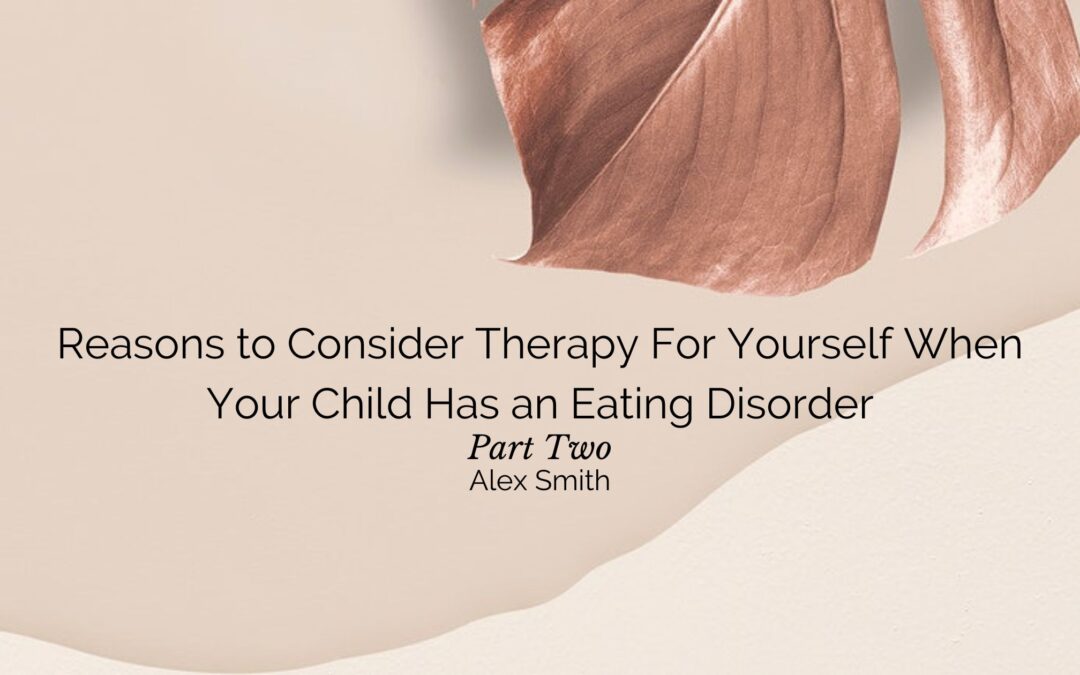As promised, here is the continuation of reasons to consider therapy when your child has an eating disorder (read Part One here).
Reason #3: To Learn How to Translate the Eating Disorder

Eating disorders have a language of their own. Therapists specializing in eating disorders can help parents identify when the eating disorder is talking and help them “translate” the message being communicated underneath.
Eating disorders speak in a language based on terminology around food, weight, exercise, and eating disorder behaviors, but it’s never really about any of those things. Underneath these issues are deeper concerns related to self-love, self-esteem, self-worth, trauma, identity, connection and relationships, and an ability to understand and tolerate emotions.
Parents understandably become frustrated when they see their child engaging in behaviors such as purging, restricting, bingeing, over-exercising, abusing laxatives, etc., and will often think, “Why won’t they just eat?!”
When you gain insight into what the eating disorder is telling your child and its purpose in their life, it allows you to support the underlying emotions rather than fighting against the behaviors. An eating disorder therapist can also help you identify specific ways to respond to your child when they’re in distress and tools that you can use to help them better regulate their emotions and begin to heal.
Reason #4: Getting Support for Trauma

Every parent wants their child to be happy and healthy. It can be soul-crushing and even traumatic to witness your child suffering and to experience the emotional difficulties permeating the family system when they have an eating disorder.
Having your own therapist provides you with a non-judgmental space to process this emotional trauma. Although your child may be the one with the eating disorder, the disorder affects everyone in the household, parents and other siblings included.
In your own therapy, you can do your own healing and learn how to best support yourself during this difficult time. A qualified therapist can also help you navigate the challenges of caring for your child while supporting siblings and staying connected in a marriage or other romantic relationship.
**
I am now accepting new clients. If your child is struggling with an eating disorder and you are looking for an experienced clinician who can help you navigate this territory, please reach out to our intake team at (720) 675-7123 and schedule your free consultation or fill out a contact form and our admin team will be with you shortly.
Photo credits:
Photo by Kelly Sikkema on Unsplash
Photo by eberhard 🖐 grossgasteiger on Unsplash




